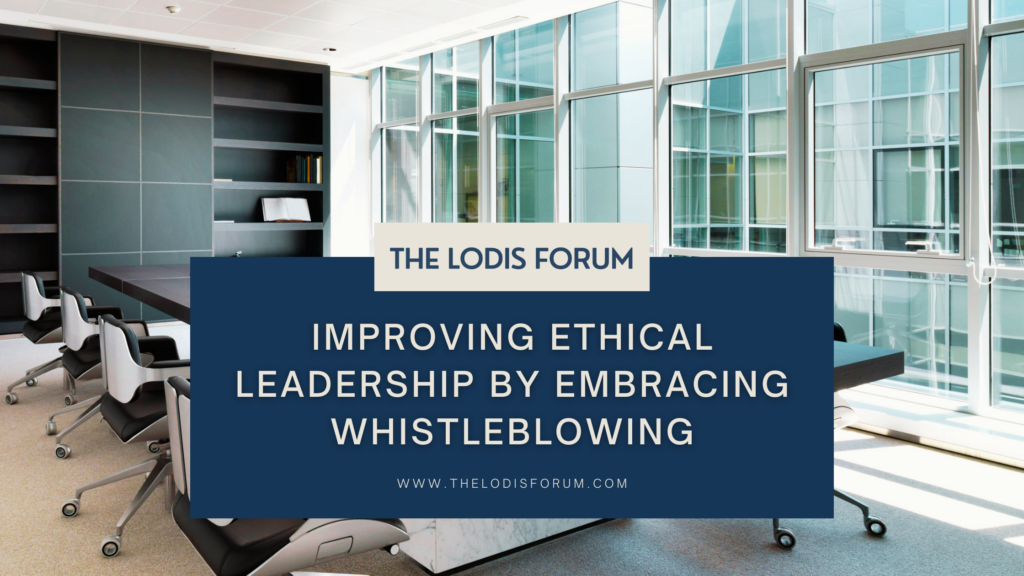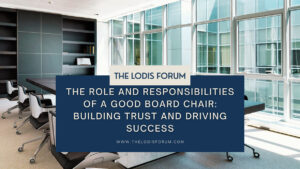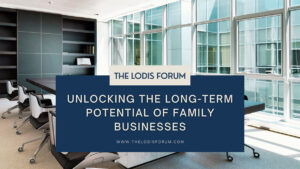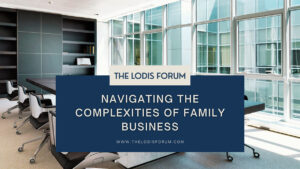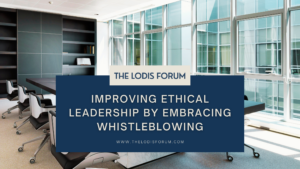You’re likely familiar with the phrase, “see something, say something.” It’s an adage that’s supposed to be clear and simple, but when was the last time you saw something happening within your company’s ranks yet said nothing? This could have been as simple as a slight spreadsheet trick, or maybe you overheard a whisper of financial wrongdoing that could put the organization in real trouble. These “somethings” happen more than we’d like to admit, simply because fraud and corruption are scary things to talk about and because the culture of speaking up is taboo.
Ethical lapses often happen in the corporate setting because of a hush culture. It’s part of the board’s responsibility to begin the conversation around fraud and where ethics begin. Kelly Richmond Pope, author of Fool Me Once: Scams, Stories, and Secrets from the Trillion-Dollar Fraud Industry and a forensic accounting expert in white-collar crime, has a unique perspective when it comes to financial fraud and perpetrators of a corporate nature—all from the viewpoint of the whistleblower.
Yes, it’s uncomfortable to “come forward in the name of the truth,” as Pope says so well in ‘How Whistleblowers Shape History,’ her 2018 TED Talk. While she encourages us and her students to come forward with information as soon as it’s found, she does not discredit that whistleblowers face difficult uphill climbs. They’re often labeled as ‘tattletales’ and ostracized into silence, almost like everyone’s back in the fifth-grade schoolyard.
If employees and board members are held responsible for reporting an injustice or negligence when discovered, why are they so grossly met with backlash?
When standing behind big corporations and brands, the fear of retaliation, being demoted, or even losing the job is fierce, and choosing to expose the truth (blow the whistle) is not an easy endeavor. As leaders, we must provide all parties with an environment where the truth can run freely and safely.
Pope leads the discussion by breaking down the archetypes of whistleblowers and explaining why they might behave the way they do. These three archetypes include:
- The Accidental Whistleblower
- The Noble Whistleblower
- The Vigilante Whistleblower
Most of the time, we think of whistleblowers as the third type, which is where the word’s negative connotation comes into play.
A vigilante whistleblower is a person that’s always complaining about the company’s structure and workings, poking their nose into the business of others. Generally, they’re fine with any publicity that hits them; the more attention they receive, the better.
Accidental whistleblowing is the largest category of whistleblowers. These are the people who discover fraud in their normal day-to-day in the workplace. They are unlikely to speak out publicly and don’t do it for the attention.
The noble whistleblower is the same in that they prefer to stay anonymous, but their origin is slightly different. This insider employee is approached to participate in an unethical plot. You’ve probably seen some of these accounts in true crime dramas on Netflix and other streaming services. The insider refuses to turn a blind eye to wrongdoings and reports this fraud through the proper channels.
Overall, any archetype of whistleblower faces extreme stress and hardship and is frequently placed under more scrutiny than individuals who commit fraudulent acts. It’s imperative to recognize the whistleblower’s courage and support and protect those who choose to speak out against injustice.
Many whistleblowers face heavy psychological, societal, and financial pressures. Their decision to come forward and expose wrongdoing can have repercussions for their peers and superiors. They could lose their jobs, be ostracized, or be blackballed in the industry. These legitimate fears of the people doing the right thing require us, as leaders, to provide protection for whistleblowers.
In leadership roles—whether in the C-suite, compliance, or internal audit—the mandate extends beyond routine responsibilities to address the organization’s ethical challenges, no matter their magnitude. However, we, unfortunately, humans tend to “shoot the messenger.” This reflex is counterproductive, especially in settings like the boardroom, where transparency and open dialogue are indispensable for meaningful change.
We even recognize this in our day-to-day relationships. When someone close to us critiques us, our first line of defense is often to stand our ground and make our point. When we step back, we realize it’s only the people who truly care about us the most who are willing to step up and tell us the truth. The same goes for your whistleblower.
Encouraging a speak-up culture within your organizations should be a top priority toward promoting ethical behavior and deterring unethical practices. How do you do this? Simple. Give your employees and boardroom a safe place to speak. Effective internal hotlines, fraud awareness training, and prompt review and action on reports can be the very components that will help you develop a strong speak-up culture.
Pope mentions that according to the ACFE (Association of Certified Fraud Examiners), organizations that do not provide fraud awareness training to their staff lose nearly two times more to financial crime than those that do. Essentially, the people in the trenches are far more likely to witness a fraud committed than an oversight committee.
In fact, 40% of all frauds are discovered by a whistleblower, not internal committees. This includes employees, shareholders, vendors, anonymous tipsters, and, in rare cases, a competitor.
If we want to fight fraud at the root and provide an ethical, safe space for board decisions to thrive, whistleblowing must be accepted and should be in the corporate protocol. When you see something, what will you say?
Check out Kelly Richmond Pope’s book, Fool Me Once: Scams, Stories, and Secrets from the Trillion-Dollar Fraud Industry, for more information on fighting fraud from the insider’s perspective.
